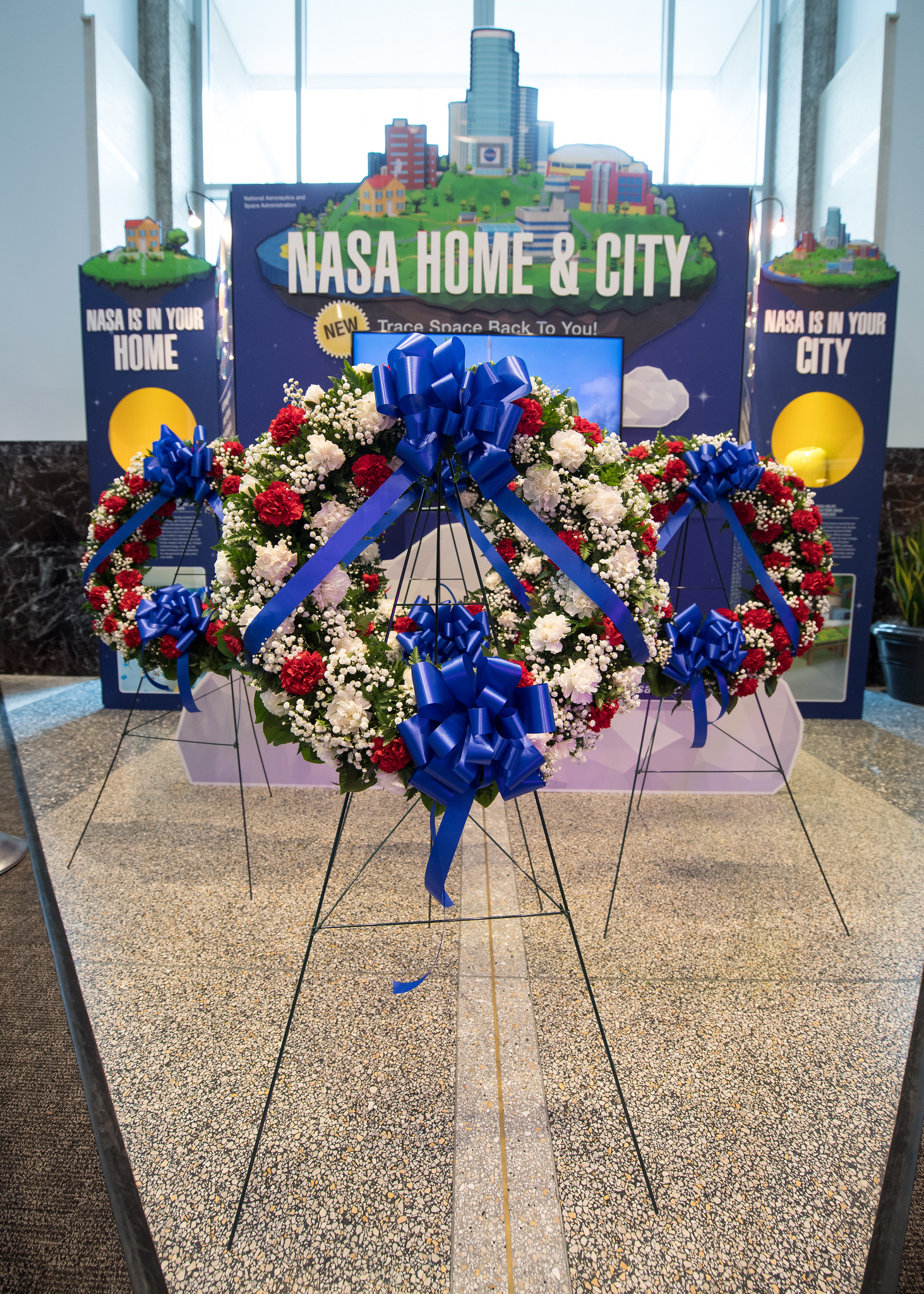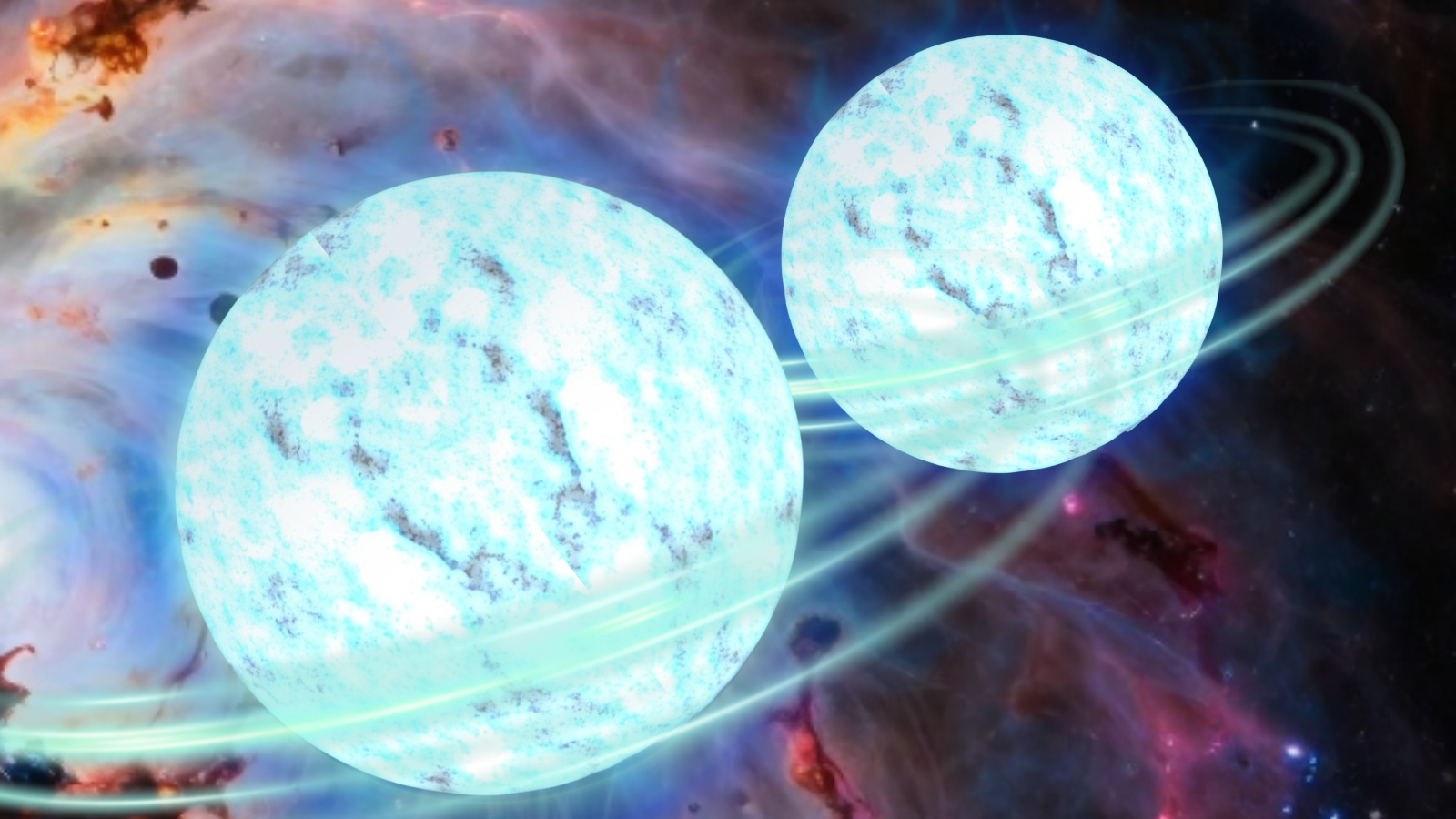Trump Honors Sacrifice of Apollo 1, Challenger and Columbia Astronauts
Breaking space news, the latest updates on rocket launches, skywatching events and more!
You are now subscribed
Your newsletter sign-up was successful
Want to add more newsletters?

Delivered daily
Daily Newsletter
Breaking space news, the latest updates on rocket launches, skywatching events and more!

Once a month
Watch This Space
Sign up to our monthly entertainment newsletter to keep up with all our coverage of the latest sci-fi and space movies, tv shows, games and books.

Once a week
Night Sky This Week
Discover this week's must-see night sky events, moon phases, and stunning astrophotos. Sign up for our skywatching newsletter and explore the universe with us!

Twice a month
Strange New Words
Space.com's Sci-Fi Reader's Club. Read a sci-fi short story every month and join a virtual community of fellow science fiction fans!
President Donald Trump on Thursday (Feb. 7) honored the service and sacrifice of astronauts who gave their lives in the pursuit of space exploration during NASA's annual Day of Remembrance.
NASA's Day of Remembrance is a somber event when the space agency reflects on those who have died while advancing spaceflight, including the 17 astronauts lost in the Apollo 1 fire of Jan. 27, 1967, the space shuttle Challenger disaster in Jan. 28, 1986 and the Columbia shuttle tragedy of Feb. 1, 2003. While the incidents occurred decades apart, the anniversaries of all three space disasters fall in a single week.
"Each year, America pauses to remember its fallen astronaut heroes and the great accomplishments for which they strived. Melania and I mourn their passing and take to heart the lessons of their lives and the greater human potential to which they continue to inspire" Trump said in a statement.
"As our Nation continues to lead the world in forging a pathway to space, we honor the legacy of these brave men and women," Trump added. "We vow to continue building the bold future they envisioned for all of humanity on this Earth and beyond. Though our friends, colleagues, and family members have left this Earth, they will always be with us as we journey among the stars."
The Apollo 1 fire killed NASA astronauts Gus Grissom, Ed White and Roger Chaffee while the three men were performing a test aboard their spacecraft atop its launchpad. The fire stalled NASA's push to send astronauts to the moon by the end of the 1960s, although the space agency ultimately recovered and landed the Apollo 11 astronauts on the moon in July 1969. [Photos of the Apollo 1 Fire: NASA's First Disaster]
The space shuttle Challenger was lost just after its liftoff, killing astronauts Dick Scobee, Michael Smith, Judy Resnik, Ellison Onizuka, Ron McNair, Greg Jarvis, and Christa McAuliffe. McAuliffe was set to be the first teacher in space during the mission.
On Feb. 1, 2003, the shuttle Columbia broke apart during re-entry due to heat shield damage caused during its launch 16 days earlier. The accident killed NASA astronauts Rick Husband, William McCool, David Brown, Kalpana Chawla, Michael Anderson, Laurel Clark, and Israeli astronaut Ilan Ramon. The tragedy forced NASA to stand down from shuttle flights for two years and develop new heat shield inspection and repair techniques for future missions.
Breaking space news, the latest updates on rocket launches, skywatching events and more!
"The loss of the courageous crews from Apollo 1, Challenger, and Columbia was not in vain," Trump said in his statement. "As Americans, our unwavering commitment to continue their heroic journey is unparalleled in the history of human exploration. We will continue to move forward and reach for new heights. We will persevere. And by doing so, we will lead the world into a new era of discovery."
Email Tariq Malik at tmalik@space.com or follow him @tariqjmalik. Follow us @Spacedotcom and Facebook. Original article on Space.com.

Tariq is the award-winning Editor-in-Chief of Space.com and joined the team in 2001. He covers human spaceflight, as well as skywatching and entertainment. He became Space.com's Editor-in-Chief in 2019. Before joining Space.com, Tariq was a staff reporter for The Los Angeles Times covering education and city beats in La Habra, Fullerton and Huntington Beach. He's a recipient of the 2022 Harry Kolcum Award for excellence in space reporting and the 2025 Space Pioneer Award from the National Space Society. He is an Eagle Scout and Space Camp alum with journalism degrees from the USC and NYU. You can find Tariq at Space.com and as the co-host to the This Week In Space podcast on the TWiT network. To see his latest project, you can follow Tariq on Twitter @tariqjmalik.

